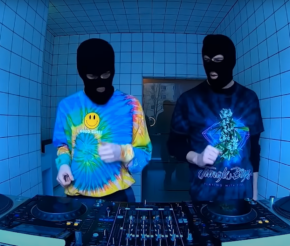- Advertise
-
Subscribe
NTIA Report Reveals Vital Importance of UK Electronic Music Industry

UK’s electronic music is experiencing its heyday, as an NTIA report shed light on its cultural and economic value. In the first-ever UK Electronic Music Industry Report, NTIA valued the industry at a whopping £2.6 billion, with clubs valued at £1.65 billion and festivals at £519 million.
Recent data showed that the bumpy genre took over the charts last year when it became UK’s second favorite genre. Its rising popularity is visible in the live music industry, with electronic being the most played genre at festivals.
While 2.4 million people attended 145 UK festivals, 29% of the heroes behind the decks were electronic artists.
But not everything is good news. Although the nightlife market took a hit with almost 30% of UK clubs closing down since the pandemic, there were 103 million night-outs in the past 12 months.
Beyond the live events, electronic music contributes to the UK’s economy with £181 million through exports, publishing, and records. Exports of recorded music from the UK hit a record high of £590 billion in 2021, with £41 million being electronic.
The NTIA report further highlights electronic music’s status as a cultural symbol. By providing a sense of community, creating social bondings, and giving individuals a sense of identity, the foot-tapping genre goes way beyond the financial gains.
NTIA’s CEO Michael Kill said the UK government has “a limited understanding”of the industry,” as electronic music wasn’t initially included in the pandemic’s Cultural Recovery Fund.
“Electronic music is one of the UK’s understated phenomena, it shapes and embraces communities, educates, inspires and unites the UK with its unique form of culture.”
The 55-page report also proposes potential solutions to keep the industry alive. These include simplifying licensing procedures, addressing gentrification, and providing financial support.
Other statistics
- Since March 2020, the number of free nightclubs (operated by multiple promoters and event organizers) decreased by 33%.
- More than 60,000 UK jobs are nightclub-related.
- Festival-goers spend an average of £216 per festival (including drinks, food, and transport).
- The average bill rise for small establishments is estimated at £3,889 and medium establishments face an increase of £9,677.
- While 29% of artists performing at UK festivals are electronic, 22% are rock and 21% fall in the pop category.






